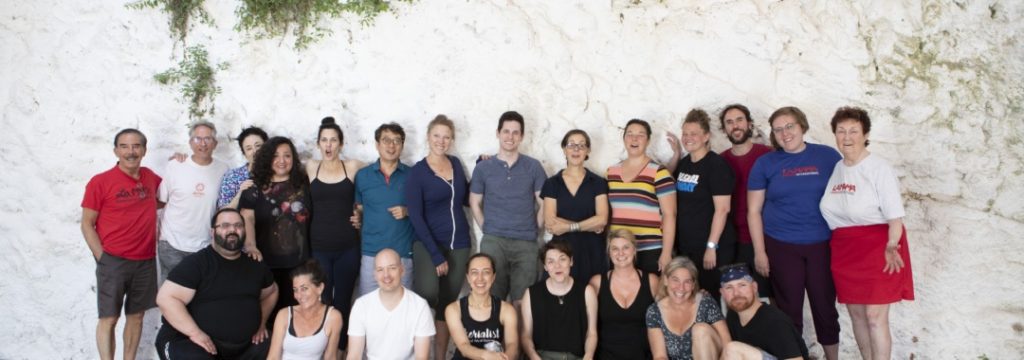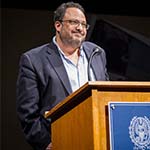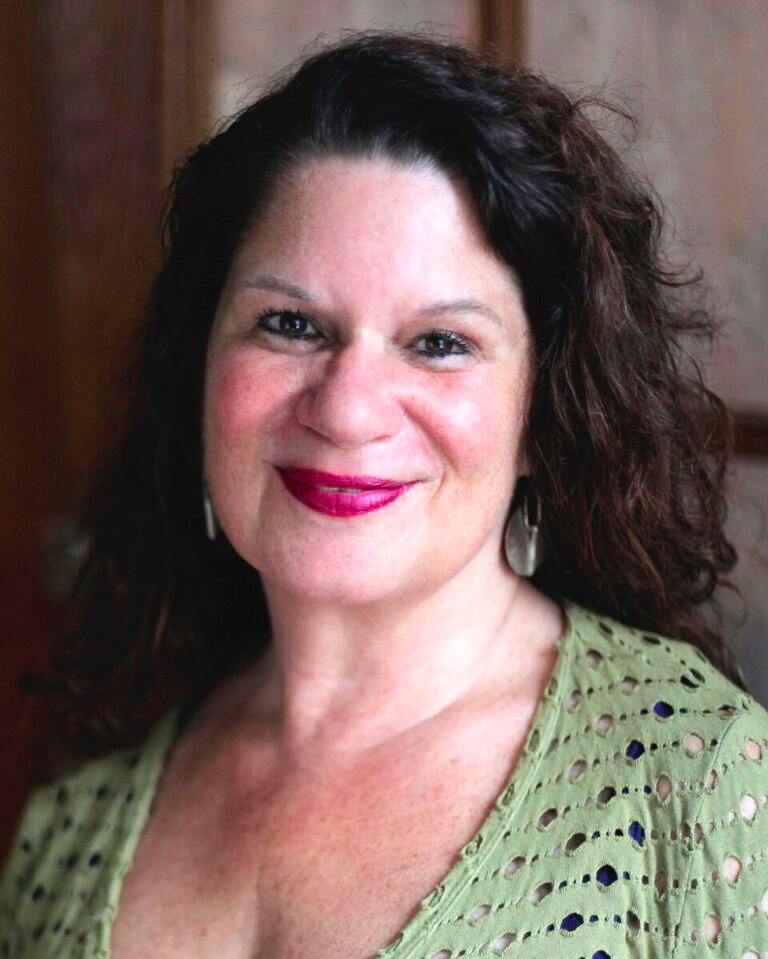
July 15 – July 25, 2020
Workshop Leaders:
Emily Mann, Iman Aoun, Michael Mayer, Nicole Brewer
Jessica Litwak, Derek Goldman, Richard Jones, Martha Clarke
ABOUT THE WORKSHOPS
Expanding the Notion of Where Artistic Inspiration Comes From: Martha Clarke
Discuss your own project ideas and share them with Martha Clarke, who will meet with each director separately. Clarke’s multi-disciplinary approach to theatre-making takes inspiration from visual art, text, music, film and other forms. Learn to use all tools at your disposal as you prepare and develop a new work. Come prepared to ask questions.
Martha Clarke is an American theater director and choreographer noted for her multi-disciplinary approach to theater, dance, and opera. A graduate of Juilliard, she danced with the Anna Sokolow Company before becoming a founding member of Pilobolus Dance Theatre. She has choreographed for Nederlans Dans Theater, American Ballet Theatre, Rambert Dance Company, and The Martha Graham Company, among others. As a director, Ms. Clarke’s original productions include Garden of Earthly Delights, Vienna: Lusthaus, Miracolo d’Amore, Endangered Species, An Uncertain Hour, The Hunger Artist, Belle Epoque, Vers La Flame, Kaos and Chéri. She directed Alice’s Adventures Underground, a collaboration with Christopher Hampton for the Royal National Theater UK, and A Midsummer’s Night Dream for A.R.T. Opera productions include Mozart’s The Magic Flute and Cosi Fan Tutti for Glimmerglass, and Tan Dun’s Marco Polo and Gluck’s Orfeo and Eurydice for New York City Opera, among many others. She created L’Altra Meta del Cielo for La Scala Ballet (2012). She directed and choreographed Chéri (2013) for the Signature Theatre and The Threepenny Opera (2014) at the Atlantic Theater Company in New York City. Her most recent production, Angel Reapers, a collaboration with Alfred Uhry played at the Signature Theatre as her second production in her five year residency (2016). Awards: Ms. Clarke is the recipient of a MacArthur fellowship, a Drama Desk Award, two Obie Awards, two Joe A. Callaway awards, the Dance Magazine Award, the Samuel H. Scripps/American Dance Festival Award for Lifetime Achievement, and most recently, two Lucille Lortel awards and the Flora Roberts award from the Dramatists Guild 2019.
______________
Essential Skills of Directing: Richard Jones
Through one-on-one sessions with each director, Richard Jones may explore key aspects of directing including developing concept, putting together/managing a team, designer/director collaboration, contracts, casting, organizing rehearsals, solving problems in rehearsal, managing relationships with creative team and producing team, using feedback in constructive ways, etc. based on each directors’ individual needs. Bring your questions.
Richard Jones CBE is a British theatre and opera director. He was born in London, and studied at the University of Hull and University of London. His work has become controversial and has provoked considerable reactions from the UK press. However, he is also seen as a major figure in the worlds of theatre and opera. His recent production Judgement Day was presented at The Armory in New York in 2019-2020. Prior to that, he had a big success with The Hairy Ape, starring Bobby Cannavale in the same theatre. “There is no doubt that this will be a visually unique and powerful dramatic theatrical experience for New York audiences, with the grand scale of the design, coupled with Richard’s extraordinary directorial talent,” said Pierre Audi, Marina Kellen French Artistic Director at Park Avenue Armory. “As soon as we closed The Hairy Ape, I knew we would need to draw Richard Jones back to the Armory to help activate the expansive Drill Hall with another compelling project. As audiences witnessed with The Hairy Ape, Richard excels in his attention to the minutiae and the moments in-between. His choreography and the way he moves and places people across the stage help to create an invigorating visual experience that is unrivaled by many directors working on large stages today.
“He is the best British director around at the moment,” says director David Pountney, part of the “powerhouse” triumvirate that presided over English National Opera in the 1980s. “He is extremely imaginative, he has a very individual, quirky response to the material, and a very sharp eye for humor.”
According to Nicholas Hytner, artistic director-designate of the National Theatre: “He is one of the most genuinely original and completely individual directors around. Theatre work includes five productions for the Young Vic in London and which range from The Government Inspector to Annie Get Your Gun. Black Snow was directed for the American Repertory Theatre, plus All’s Well That Ends Well for the Public Theater in New York. In London, Holy Mothers was presented at the Ambassadors and the Royal Court Theatre, while La Bête was seen in London’s West End and on Broadway, where it received a Tony nomination. On Broadway, Jones’ productions of Titanic (the musical) and Wrong Mountain were presented. [3] For the Royal Shakespeare Company, Jones directed A Midsummer Night’s Dream. Le Bourgeois Gentilhomme and Tales from the Vienna Woods by Odon von Horvath—in a new version by David Harrower—were presented by the National Theatre in London. Jones has won many awards including 6 Olivier Awards and the Evening Standard Award for Best Director.
________________
Anti-Racism in the Theatre: Nicole Brewer
My workshops are taught through my unique perspective as an actor, director, and facilitator. The workshop is designed to be an engaging mixture of theatre games, anti-racist theory, self-reflection and collaborative exercises that model for participants what anti-racist theatre looks like through conscientious theatre training.
Nicole Brewer is Founder of Creative Acts Learning Center LLC. Her work exposes the shape-shifting quality of racism in theater, and provides a framework for theater organizational culture to transform to fully inclusive and anti-racist through the use of conscientious theatre training. She says, “I believe unceasingly that our collective liberation is tied to one another and the way forward is together.”
_______________
Theater as Call and Response: Performing One Another: Derek Goldman
We will explore inclusive, communal, participatory approaches that Goldman and the Laboratory for Global Performance and Politics have developed and practiced in settings internationally and as a means of bringing together ideologically polarized communities together.
Derek Goldman is Chair of the Department of Performing Arts and Director of the Theater & Performance Studies Program at Georgetown University in Washington DC, as well as co-Founding Director of the Laboratory for Global Performance and Politics (with Ambassador Cynthia Schneider) with the mission “to harness the power of performance to humanize global politics.” He is an award-winning stage director, playwright/adapter, scholar, producer, festival curator, and developer of new work, whose work has been seen around the country, Off-Broadway, and internationally. His work has been seen at theaters such as Steppenwolf, Lincoln Center, Arena Stage, The Kennedy Center, Ford’s Theater, McCarter, Segal Center (Montreal), Baltimore CenterStage, Folger, Round House, Everyman, Theater J, Mosaic, Synetic, Olney, and many others. He is the author of more than 30 professionally produced plays and adaptations, including work published by Samuel French, and he has directed over 100 productions. His engagement with global performance in recent years has taken his work to Armenia, Australia, Bangladesh, Bulgaria, Cambodia, Canada, Chile, China, the Czech Republic, France, the Netherlands, Peru, Poland, Russia, South Africa, Spain, Sudan, throughout the UK, among other places. He is a member of the Board of Directors of Theatre Communications Group (TCG); Vice-President of UNESCO’s International Theatre Institute, and a co-Founder of the Global Network for Higher Education in the Performing Arts. He received the President’s Award for Distinguished Scholar-Teachers at Georgetown. He received his Ph.D. in Performance Studies from Northwestern University.
_____________
Getting Back to Story: Michael Mayer
We will explore story, character and plot in theater, opera, television and film. Explore the intricacies of adjustments directors make as they move from one medium to another.
Award-winning director Michael Mayer has worked in a broad spectrum of media from theatre and opera to television and film.
Theatre credits include: the new Avett Brothers musical Swept Away at Berkeley Rep, the hit revival of Little Shop of Horrors starring Jeremy Jordan now playing at the Westside Theatre; Adam Driver and Keri Russell in Burn This, Head Over Heels (featuring the songs of The Go-Go’s), Neil Patrick Harris in Hedwig and the Angry Inch (Tony Award, best musical revival, also National Tour), Spring Awakening (Tony Award/Best Musical and Tony, Drama Desk and Outer Critics Circle Awards for Best Director; also London, National Tour, Vienna, Tokyo, and Seoul productions); Green Day’s American Idiot (also co-author, Drama Desk Award for Best Director; also US, UK and Asia tours); Thoroughly Modern Millie (Tony Award/Best Musical also London and National Tour), Side Man (Tony Award/Best Play also London and Kennedy Center Productions), A View from the Bridge (Tony Award/Best Revival), Michael Moore’s The Terms of My Surrender, Everyday Rapture, You’re a Good Man, Charlie Brown, and Triumph of Love; off-Broadway credits include Lin-Manuel Miranda’s 21 Chump Street (BAM), Chess (Kennedy Center), Love, Love, Love (Roundabout), Brooklynite (Also co-author, Vineyard), Whorl Inside A Loop (with Dick Scanlan, Second Stage), 10 Million Miles (Atlantic): Angels in America. London: a record-breaking West End run of Funny Girl and UK tour. Tokyo: As You Like It (Toho Theatre). Film: A Home at the End of the World (Excellence in filmmaking, National Board of Review, GLAAD nomination), Flicka, The Seagull. He was featured in the documentary Broadway Idiot. Television credits Include: SMASH (Pilot, producing director: Season One), two seasons of Alpha House (Amazon), producer for the HBO film WIG. He made his Metropolitan Opera debut with a celebrated new production of Rigoletto, followed by a co-production (with the English National Opera) of Nico Muhly’s Marnie, and a new production of La Traviata, which broke box office records. Additional Awards and fellowships: the inaugural Daryl Roth Creative Spirit, Drama League Jefferson, Ovation, Alan Schneider, and Carbonell awards; Fox Foundation Fellowship, Two Drama League Fellowships, TCG/NEA Directing Fellowship. He serves on the Boards of New York Stage and Film and the Arthur Miller Foundation. @michaelmayerdir
______________
Creative Resilience: Jessica Litwak
Interactive methods and philosophies will be revealed to participants to apply to their creative process. Focus of activities: Self-perception, Litwak Progression for voice work, text, writing and directing with ensembles. Understanding the dynamic of energy and space and Creating Narratives.
Jessica Litwak Ph.D is a seasoned theatre arts professional focused specifically on theatre for social change and community engagement. She is a recognized leader in the Field with over 30 years experience. She is playwright, educator, actor, Registered Drama Therapist, and a trained practitioner of Playback, Psychodrama, and Theatre of the Oppressed. She is the Artistic Director of The H.E.A.T. Collective (www.heatcollective.org) and The New Generation Theatre Ensemble (www.ngte.org). Litwak has taught theatre at San Francisco State University, the Theatre Academy at Los Angeles City College, Stella Adler Academy, Marymount Manhattan College, Columbia, NYU, Lesley University, Whitman College, and Naropa University and in Iraq, Lebanon, India, Palestine, Israel, Egypt, Turkey, Scotland, England and Italy. She has conducted seminars for The Global Mobility Symposium, The World Economic Forum, Performing The World, the North American Drama Therapy Association Conference, and The International Peace and Reach Association Conference. Litwak is a core member of Theatre Without Borders. She is a Fulbright Specialist Scholar.
____________
The LEAR Project: Emily Mann
This workshop will delve deeply into KING LEAR, stripping it to its essence, bringing it to life for the 21st century. Directors will work on text analysis, story-telling, concept, and staging concepts.
Emily Mann is a multi-award winning playwright and director in her 30th and final season as Artistic Director and Resident Playwright at McCarter Theatre Center in Princeton, New Jersey. During her tenure, Emily wrote 15 new plays and adaptations, directed over 50 productions, produced nearly 180 plays and musicals, supported the work of emerging and legendary playwrights, received the Tony Award for Outstanding Regional Theater, commissioned the Tony Award winning play Vanya & Sonia & Masha & Spike by Christopher Durang, and opened the beautiful Roger S. Berlind Theatre.
McCarter directing credits include: acclaimed productions by Shakespeare, Chekhov, Ibsen, and Williams and the world premieres of Christopher Durang’s Turning Off the Morning News and Miss Witherspoon; Ken Ludwig’s Murder on the Orient Express; Rachel Bonds’ Five Mile Lake; Danai Gurira’s The Convert; Sarah Treem’s The How and the Why; and Edward Albee’s Me, Myself & I. Broadway: A Streetcar Named Desire, Anna in the Tropics, Execution of Justice, and Having Our Say. Her newest play Gloria: A Life about the legacy of Gloria Steinem opened McCarter’s season this year after a successful run in New York at The Daryl Roth Theater. Awards: Peabody, Hull Warriner, NAACP, 7 Obies, Guggenheim; Tony, Drama Desk, Outer Critics Circle nominations; a Princeton University Honorary Doctorate of Arts, a Helen Merrill Distinguished Playwrights’ Award, the Margo Jones Award given to a “citizen-of-the-theater who has demonstrated a lifetime commitment to the encouragement of the living theater everywhere”. This past June, she was awarded the TCG Visionary Leadership Award. In November, Ms. Mann was inducted into the American Theater Hall of Fame.
____________
How ‘Theatre of the Oppressed’ Can Be a Tool Beyond Its Form: Iman Aoun
A practical introduction of TO and Augusto Boal. Then we move into image theatre, forum theatre and the aesthetics of the oppressed and combine them with other forms of acting to reach a hybrid that could help the group free their possibilities when they are connected to a social issue.
Iman Aoun is an actor, director and dramaturg. She has an extensive record on stage, on screen, and behind the scenes. She was a member of the world-renowned El-Hakawati theatre, from Jerusalem, in the 1980s.In 1991 Iman co-founded ASHTAR for Theatre Productions and Training in Jerusalem, and has been instrumental in directing and devising several productions for the company. An internationally recognized theatre trainer who specializes in the Theatre of the Oppressed techniques, Iman is also initiator of the project 100 artists for Palestine in 2003. In 2010, Iman developed The Gaza Mono-Logues, a documentary theatre performance based on the personal stories of a group of children from Gaza – The Monologues were distributed to various partners around the globe in October 2010, and were performed by 1500 youth in more than 50 cities in 36 countries.Ms Aoun produced and performed in ASHTAR’s Theatre – Richard II that toured to Shakespeare’s Globe Theatre as part of the Globe to Globe Festival 2012. She was also the initiator of the international call “The Syrian Monologues” based on the stories of Syrian Refugees 2015-2016. She has been coordinating the “One Billion Rising” in Palestine between 2014 – 2016, a global call to end violence against women and girls initiated by V-Day. She continues to lead ASHTAR Theatre and work regularly in difficult social and political contexts. She is a board member of The Palestinian Performing Arts Network and other Palestinian Art Organizations. www.ashtar-theatre.org













